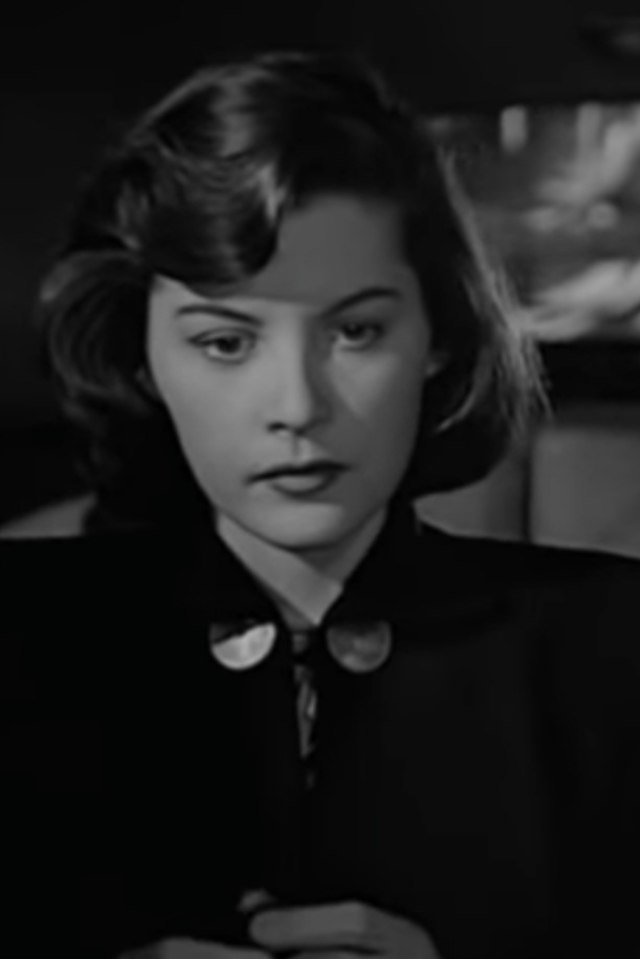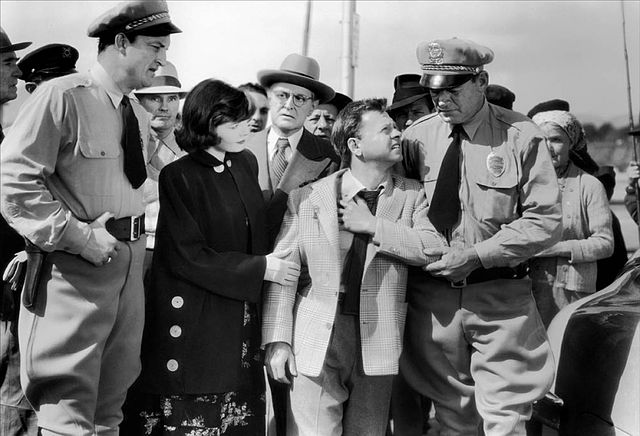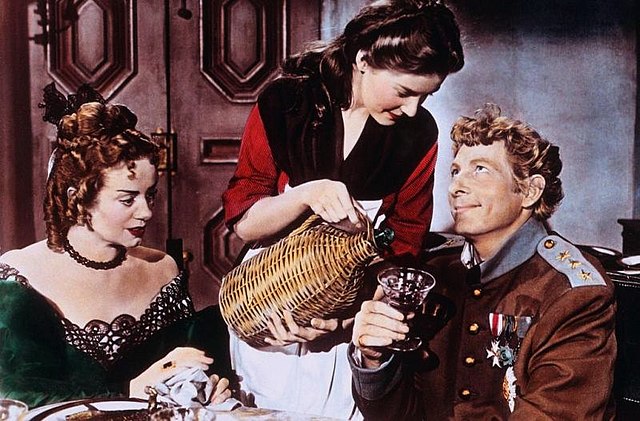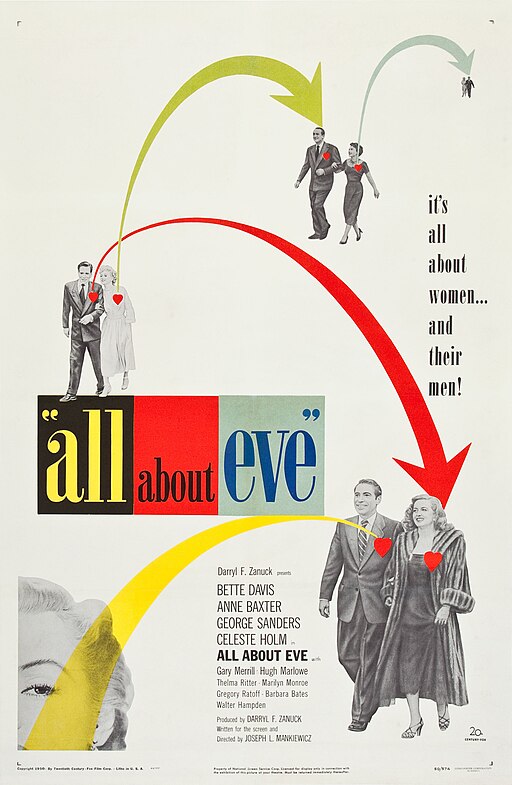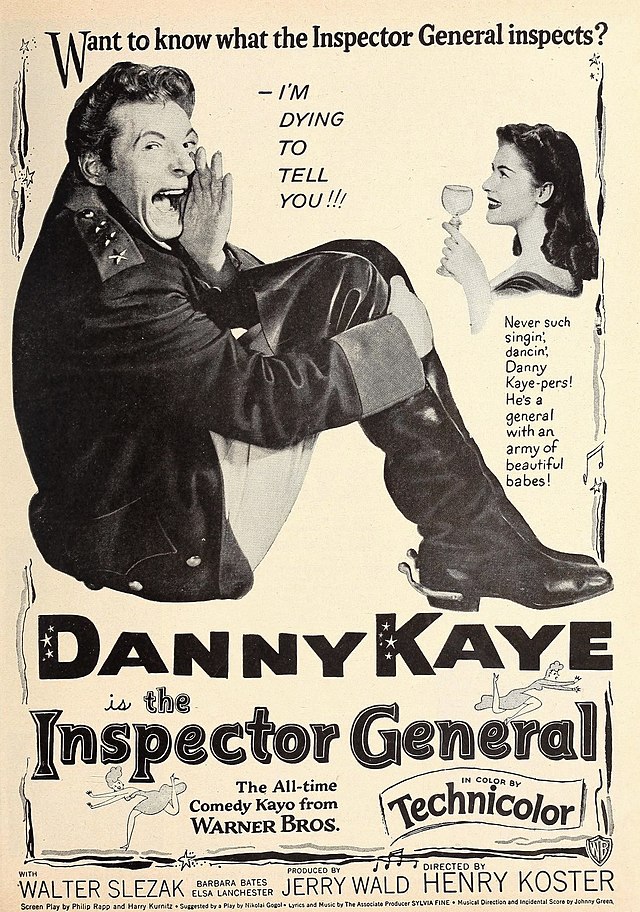Barbara Bates
back| Full Name | Barbara Jane Bates |
| Stage Name | Barbara Bates |
| Born | August 6, 1925 |
| Birthplace | Denver, Colorado, USA |
| Died | March 18, 1969 (age 43) |
| Buried | Crown Hill Cemetery, Wheat Ridge, Colorado, USA |
| Married to | Cecil Coan (1945–1967, his death) |
| Children | None |
| Notable films | All About Eve (1950) - June Bride (1948) - Cheaper by the Dozen (1950) - The Inspector General (1949) |
Barbara Bates
Hollywood’s Fragile Beauty
Barbara Bates was a rising star in the late 1940s and early 1950s, best known for her small but memorable role in All About Eve, where she played Phoebe, a young, ambitious actress who hints at being the next "Eve Harrington" in the closing scenes of the film.
Despite early success, her career declined after personal struggles, including mental health issues and difficulties within the industry. She tragically passed away at the age of 43 from carbon monoxide poisoning in an apparent suicide.
Related
Barbara Bates (1925 – 1969)
Biography and Movie Career
Barbara Jane Bates was born on August 6, 1925, in Denver, Colorado, into a working-class family. She was the eldest of three daughters and grew up in a modest environment. From a young age, Barbara was known for her beauty and shy, quiet demeanor. She had dreams of becoming a dancer and took ballet lessons as a child. However, her introduction to the entertainment industry came unexpectedly.
Barbara’s early years were marked by typical small-town life, attending public school and participating in local activities. After graduating from high school, she worked as an usherette at a local theater, a job that would set the stage for her first taste of fame. While working at the theater, she was noticed by a visiting fashion photographer, who encouraged her to enter a local beauty contest. Winning the contest opened doors for her to pursue modeling and gave her the confidence to consider a career in Hollywood.
Path to Success in Hollywood
In 1944, Barbara Bates’ life took a dramatic turn when she met Cecil Coan, a United Artists publicist who would later become her husband and career manager. He encouraged her to pursue acting, and shortly after they met, they moved to Los Angeles. Cecil, who was well-connected within the film industry, helped arrange screen tests for Barbara, and her beauty and charm quickly attracted attention.
Bates signed a contract with Warner Bros. in the mid-1940s, making her screen debut in the minor role in The Affairs of Martha (1942). However, it wasn’t until she joined 20th Century Fox in the late 1940s that her career gained momentum. Barbara’s breakthrough came with the 1948 romantic comedy June Bride, where she starred alongside Bette Davis. She impressed critics and audiences alike with her fresh-faced beauty and subtle acting skills.
Barbara’s most iconic role came in 1950 when she played Phoebe in All About Eve. Although her role was small, she appeared in the movie’s closing scene as a scheming young actress, which left a lasting impact on viewers. All About Eve was a major success and is still considered a classic in Hollywood’s golden age. Barbara’s performance hinted at her potential to become a major star.
Marriages and Personal Struggles
In 1945, Barbara Bates married Cecil Coan, her mentor and agent, who was 17 years her senior. Their marriage was initially strong, with Cecil deeply invested in Barbara’s career. However, over time, their relationship became strained. Cecil's commitment to boosting Barbara’s career was matched by her increasing dependence on him, both emotionally and professionally.
The pressures of Hollywood took a toll on Barbara’s mental health. By the mid-1950s, she began to struggle with anxiety and depression, exacerbated by the competitive nature of the film industry and her dissatisfaction with her roles. Her struggles affected her ability to perform consistently, and by the late 1950s, her career had started to wane.
Barbara’s marriage to Cecil Coan, though it had started as a supportive partnership, became increasingly tumultuous. She found herself trapped between her desire to succeed and the emotional toll the industry took on her. Cecil passed away in 1967, and Barbara was left devastated, further deepening her battle with depression.
Career Decline and Personal Passions
Although Barbara Bates’ early success showed great promise, the pressures of stardom, combined with her fragile mental health, hindered her ability to sustain her career. After a string of supporting roles in films like Cheaper by the Dozen (1950) and Belles on Their Toes (1952), her opportunities in Hollywood began to dwindle. Her attempts to revive her career were unsuccessful, and she found herself relegated to minor roles or B-movies, as the film industry moved on without her.
Despite the struggles in her professional life, Barbara was passionate about other forms of creative expression. She had a love for animals and enjoyed spending time outdoors. Some reports suggest she was also interested in art and painting, though she kept much of her personal interests private.
Final Years and Tragic Death
As Barbara’s career waned and her personal struggles intensified, she withdrew from the public eye. Her mental health deteriorated, and she faced bouts of depression that became more severe in the years following Cecil Coan’s death. In the late 1960s, she returned to Denver to live a more quiet and reclusive life.
On March 18, 1969, Barbara Bates tragically took her own life at the age of 43. She died from carbon monoxide poisoning in a garage in Denver. The circumstances of her death suggested suicide, as she had been struggling with depression for many years. Her passing marked the sad and untimely end of a life that had once seemed full of promise.
Barbara Bates was buried in Crown Hill Cemetery in Wheat Ridge, Colorado. Though her career was cut short, her performances, particularly in All About Eve, continue to resonate with film fans and serve as a reminder of the fragile nature of fame.
Her story, while tragic, remains emblematic of the pressures of Hollywood stardom, particularly during the studio system era, where young actresses were often pushed into the spotlight without adequate emotional support. Barbara Bates’ legacy is a cautionary tale of the human cost of fame and the importance of mental health, especially for those living in the public eye.
Video Tribute to Barbara Bates
Key Characteristics of Her Acting Style
- Naturalism and Subtlety
One of Bates’ most notable strengths was her ability to bring a natural, almost effortless realism to her characters. She wasn’t one to overact or rely on theatricality; instead, her performances were grounded in subtle gestures, soft expressions, and a delicate emotional range. This often made her performances feel authentic, especially in roles where she portrayed young women grappling with emotions or challenges beyond their years. Her ability to convey vulnerability without excess drama was one of her trademarks.
- Innocence and Sweetness
In her early roles, Bates often exuded an air of innocence that fit perfectly into the archetypes of the time—whether it was playing the cheerful Boo in June Bride or the sweet, dutiful daughter in Cheaper by the Dozen. Her softness as a performer made her appear as the “good girl” in contrast to the more assertive, femme-fatale types that were popular in Hollywood at the time. However, her sweetness was never saccharine; it felt genuine, which made her performances engaging without being over-the-top.
- Emotional Fragility
While her earlier roles leaned on her innocent charm, there was always a hint of vulnerability in Bates' performances, which became more pronounced as her career progressed. This emotional fragility came to the forefront in roles like Phoebe in All About Eve (1950), where she played a seemingly naive young actress but hinted at underlying ambition and cunning. In this role, Bates effectively captured both the wide-eyed admiration of a young woman entering show business and the subtle manipulations of someone wanting to climb the ladder—a duality that showcased her range.
- Expressive, Yet Reserved
Bates had a gift for using her facial expressions and body language to convey emotions rather than relying solely on dialogue. Her eyes, in particular, could communicate volumes, whether it was happiness, uncertainty, or anxiety. In All About Eve, her role as Phoebe is particularly memorable because of her final, wordless scene, where she gazes at herself in the mirror while trying on Margo Channing’s coat, clearly implying her ambitions without saying a word. This kind of reserved yet powerful acting became one of her hallmarks.
- Romantic, but with Depth
Many of Bates' roles were romantic in nature, and she had a natural chemistry with her co-stars, whether playing the love interest or the wholesome counterpart to the lead male. However, even in romantic comedies or light-hearted films, there was often a depth to her characters. For instance, in The Caddy (1953), while the film was largely a comedy vehicle for Dean Martin and Jerry Lewis, Bates brought a level of grounded emotionality to her role as Lisa, making her romantic entanglement feel sincere and relatable amid the film’s slapstick humor.
Later Career: Complexity and Darkness
As her career progressed, Bates showed she was capable of more than just sweet, innocent roles. Her performances began to take on more complexity, with characters that had darker or more conflicted motivations. In Queen Bee (1955), for example, she played Carol Lee Phillips, a young woman caught in a destructive web of deceit and manipulation orchestrated by Joan Crawford’s character. Bates' portrayal of Carol’s emotional turmoil—her fragility and descent into despair—was handled with a depth that made the audience sympathize with her tragic arc. Here, Bates exhibited a striking vulnerability and sadness, which seemed to mirror her personal struggles offscreen.
Conclusion
Barbara Bates' acting style was marked by an understated elegance and a natural ease in front of the camera. While she often portrayed characters that were sweet, wholesome, or romantic, there was always a layer of emotional complexity beneath the surface, which became more prominent as her career progressed. Her ability to communicate vulnerability, often with just a glance or a simple gesture, allowed her to leave a lasting impression in even the smallest roles.
Although she never reached the pinnacle of Hollywood stardom, her performances, especially in films like All About Eve and Queen Bee, demonstrate a nuanced approach to acting. Bates had the potential for deeper, more dramatic roles, but her emotional fragility, which made her so compelling on screen, also became a personal struggle, ultimately limiting her career. Nonetheless, her work remains a testament to her talent and subtle yet effective style.
Awards and Recognition
Barbara Bates did not receive any major awards or widespread recognition during her career, despite appearing in several well-known films. Her role as Phoebe in All About Eve (1950), which is considered her most iconic performance, contributed to the overall success of the film, but she did not receive individual accolades for her work. All About Eve itself was highly acclaimed, winning multiple Academy Awards, including Best Picture, but Bates' small supporting role did not bring her personal recognition in the form of awards.
Major Film Recognitions:
- All About Eve (1950):
While Barbara Bates played a small but significant role as Phoebe, the film was a massive success. All About Eve received 14 Academy Award nominations and won six, including Best Picture. Though Bates wasn’t individually honored, the film’s success brought her some recognition due to the role she played in the movie’s memorable ending.
Recognition:
- Notable Mention in All About Eve:
Over time, her brief but memorable role in All About Eve has earned her recognition in discussions about the film. The closing scene, where Phoebe looks into the mirror wearing Margo Channing’s coat, became iconic and has often been cited as a representation of the cyclical nature of ambition and stardom in Hollywood.
Despite her early promise, Bates' career did not reach a level where she would receive major awards or accolades, largely due to the personal struggles that limited her career trajectory. Much of the recognition she has received posthumously is tied to her appearance in All About Eve, a film that continues to be highly regarded in cinematic history.
Movies with Barbara Bates
1945
- Salome, Where She Danced (Uncredited Role)
A Civil War-era drama about an Austrian dancer who becomes famous in the American West. Barbara had a small, uncredited role in this movie.
1946
- The Virginian (Uncredited Role)
This Western, based on the famous novel, stars Joel McCrea as a cowboy who stands up to lawlessness. Barbara had a minor, uncredited role. - Strange Conquest (Uncredited Role)
A drama about a young doctor who falls in love with a nurse in a remote jungle outpost. Barbara again had an uncredited role in this movie.
1947
- The Shocking Miss Pilgrim (Uncredited Role)
A musical comedy about a stenographer in the late 19th century who fights for women's rights in the workplace. Barbara Bates appeared briefly in this movie in an uncredited part. - The Farmer's Daughter (Uncredited Role)
A political drama about a Swedish maid who rises to become a Congresswoman. Barbara Bates had a very small, uncredited role in this film.
1948
- June Bride (Supporting Role as Boo Brinker)
A romantic comedy about a magazine editor (Bette Davis) and a reporter (Robert Montgomery) who are sent to cover a June wedding in a small town, only to find old romantic feelings resurfacing. Barbara played the role of Boo, one of the sisters in the family involved in the wedding.
1949
- Apartment for Peggy (Supporting Role as Student)
A comedy-drama about a philosophy professor who rents part of his house to a young couple, played by Jeanne Crain and William Holden, and how they bring joy back into his life. Barbara had a small role as one of the students. - You Gotta Stay Happy (Supporting Role as Gloria)
A romantic comedy about a runaway bride and an airline pilot who end up on a cross-country adventure. Barbara played Gloria, the fiancée of the main character, played by James Stewart. - The Inspector General (Supporting Role as Leza)
This musical comedy stars Danny Kaye as a simpleton who is mistaken for a powerful government official sent to uncover corruption in a small town. Barbara Bates played Leza, the beautiful local girl who is romantically involved with one of the characters. The film is full of humorous misunderstandings, with Kaye’s signature comedic style shining through. Barbara's role, while not a lead, added charm and a romantic element to the story.
1950
- All About Eve (Supporting Role as Phoebe)
A drama about an aging Broadway star (Bette Davis) and a young, ambitious fan (Anne Baxter) who schemes her way into the actress’s life and career. Barbara plays Phoebe, a young aspiring actress who idolizes Eve and hints at repeating the same manipulative behavior that made Eve successful. This is one of Barbara's most memorable roles, despite its brief screen time. - Cheaper by the Dozen (Supporting Role as Ernestine Gilbreth)
A family comedy based on the real-life story of the Gilbreth family, who had 12 children. Barbara played Ernestine, one of the daughters of the Gilbreth family. The movie showcases the comedic and chaotic lives of the large family under the guidance of their efficiency-obsessed father.
1951
- As Young as You Feel (Supporting Role as Alice Hodges)
A comedy about an elderly man who refuses to retire and instead impersonates a company executive to change corporate policies. Barbara Bates played Alice, the secretary of the boss, in a light-hearted role.
1952
- Belles on Their Toes (Supporting Role as Ernestine Gilbreth)
A sequel to Cheaper by the Dozen, this film continues the story of the Gilbreth family after the passing of the father, focusing on how the mother and children cope with new challenges. Barbara reprises her role as Ernestine Gilbreth, the eldest daughter. - O. Henry’s Full House (Segment Role as Soapy's Girlfriend)
An anthology film featuring several adaptations of O. Henry’s short stories. Barbara appeared in the segment “The Cop and the Anthem,” where she plays a minor role as Soapy's girlfriend.
1953
- The Caddy (Supporting Role as Lisa Anthony)
A musical comedy starring Jerry Lewis and Dean Martin about a talented golfer and his comic caddy. Barbara played Lisa, the romantic interest of Dean Martin’s character.
1954
- Riot in Cell Block 11 (Supporting Role as Anne Haskell)
A prison drama about inmates who take control of a cell block, demanding better living conditions. Barbara played Anne Haskell, the wife of one of the prison guards, in a small but pivotal role.
1956
- Queen Bee (Supporting Role as Carol Lee Phillips)
A melodrama about a ruthless Southern socialite (Joan Crawford) who manipulates everyone around her. Barbara played Carol Lee Phillips, the tragic young fiancée of the main male character, whose fate is sealed by the manipulative Queen Bee.
1957
- Town on Trial (Supporting Role as Hilda)
A British crime drama about a detective investigating a murder in a small town. Barbara played Hilda, a local girl caught up in the town’s gossip and tensions. - The Wayward Girl (Lead Role as Nancy Fallon)
A drama about a woman who falls in love with a married man, resulting in emotional and social turmoil. Barbara played the lead role of Nancy Fallon, but the film failed to make a significant impact and marked the decline of her career in Hollywood.
1958
- The George Burns and Gracie Allen Show (TV Guest Role)
Though not a film, Barbara appeared in a guest spot on this popular TV show, signaling her transition from film to television as her movie career slowed down.
1962
- No Man is an Island (Supporting Role as Patricia)
A war drama based on the true story of George Tweed, an American serviceman stranded on Guam during the Japanese occupation. Barbara played Patricia, the love interest in the film, which was one of her last roles before leaving Hollywood.

